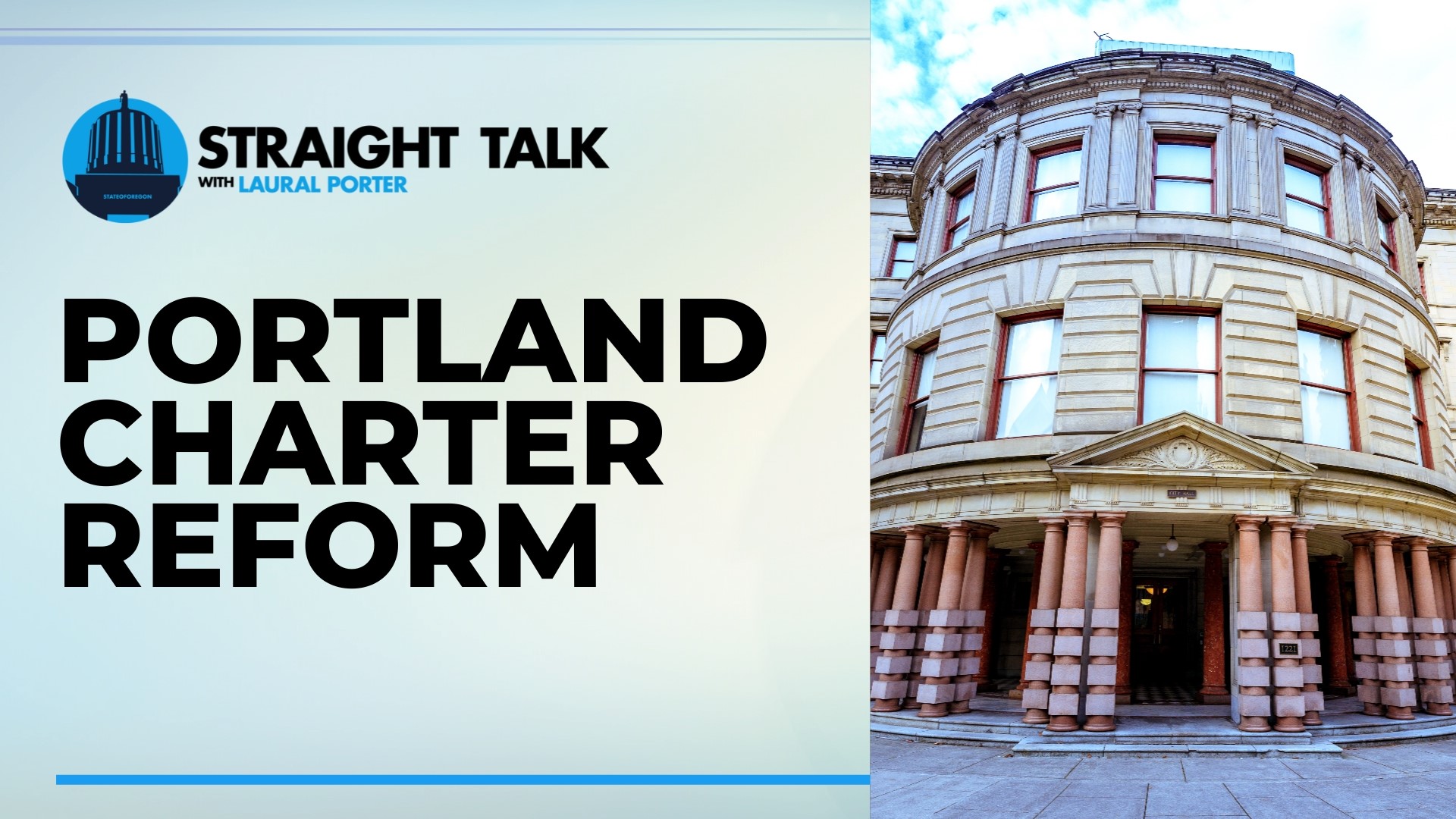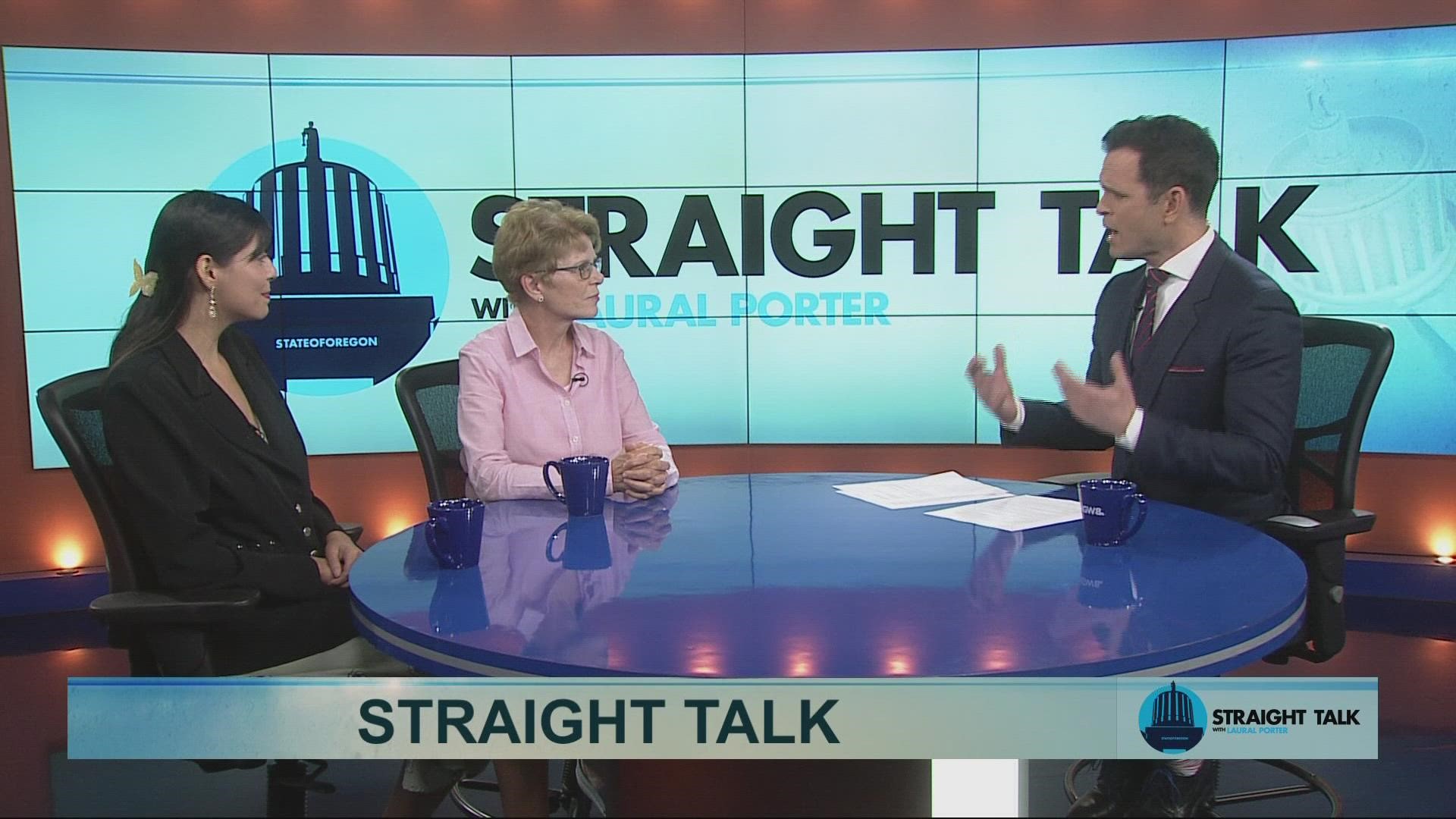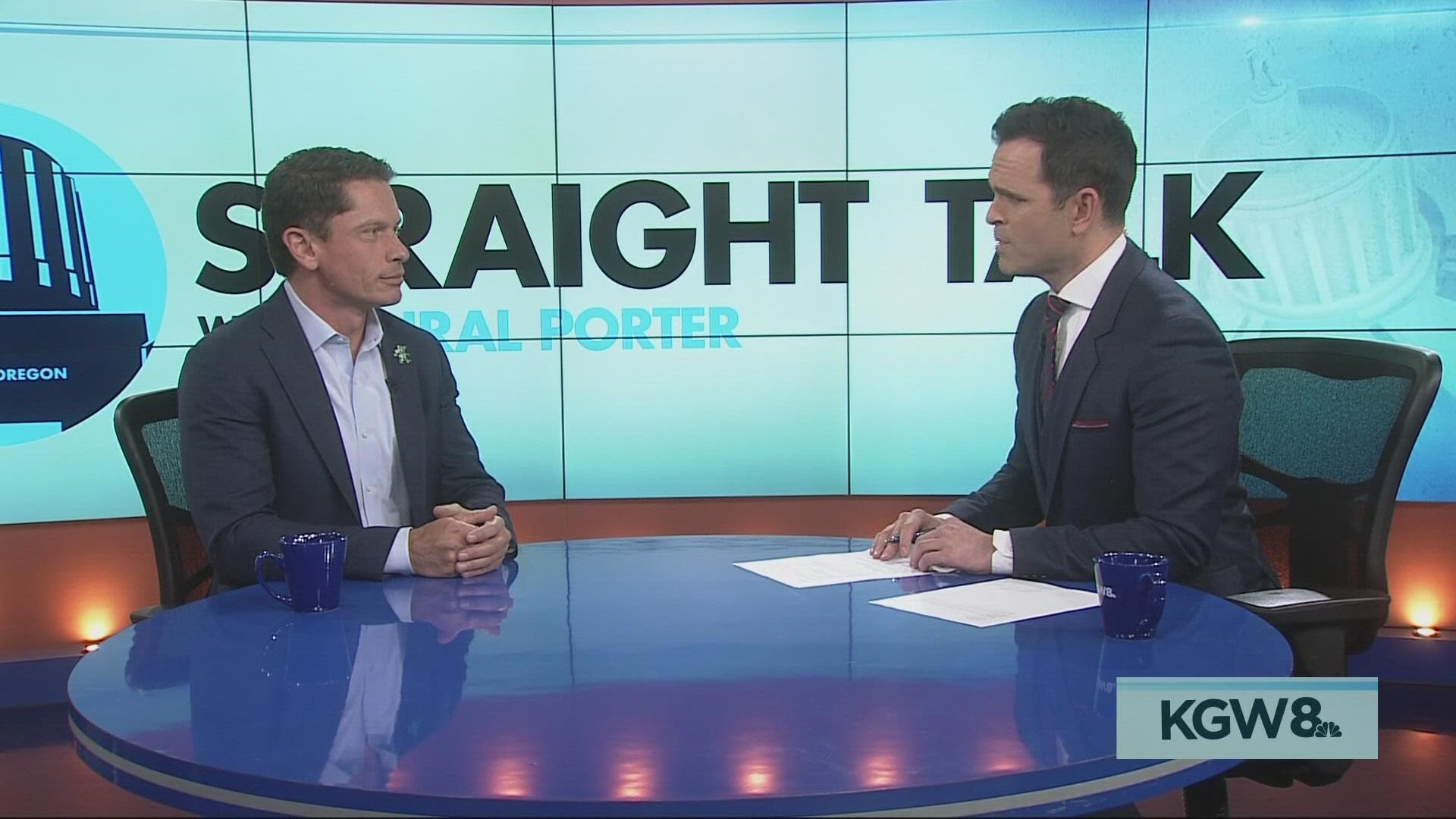PORTLAND, Ore. — Portlanders are less than two months away from voting on Measure 26-228, a proposal to radically reshape the city's form of government, and supporters and opponents of the charter reform package are both pressing their cases.
Melanie Billings-Yun, who co-chaired the Charter Commission that developed the proposal, and Sol Mora, campaign manager for the reform proposal advocacy group Portland United for Change, were guests on Straight Talk this week to make their case for the ballot measure.
Also appearing this week was Vadim Mozyrsky, who was one of three Charter Commission members who voted against the package, and is now campaigning in opposition to it as part of a group called the Partnership for Common Sense Government.
The reform package
Under Portland's existing commission form of government, the mayor and four commissioners are elected citywide and serve as both legislators and administrators; they meet as the city council to set policy, but they also each directly oversee multiple city bureaus.
The charter reform package, if passed, would split those functions up. The council would set city policy and the mayor, who would no longer have a vote on the council except as a tiebreaker, would be tasked with hiring and overseeing a city manager, who would in turn hire staff to run each bureau.
It would also expand the council to 12 members and divide the city into four geographic districts of equal population, each of which would elect three council members using ranked-choice voting.
"What we've been hearing from Portlanders — in the polls, not only speaking to them one-on-one — is that they feel we need some big structural change, not just fixing things around the edges but creating a new system that works, that represents people, and that clears out the mess we have trying to run the most basic, day-to-day operations," said Billings-Yun.
The current system is widely seen as antiquated and ineffective, and it has precious few defenders even among the reform package opponents. But the detractors have raised concerns about multiple pieces of the specific proposal heading to voters in November, arguing that they could create new problems.
"When you look at what the actual proposal is, it's not about accountability, it's not about representation," Mozyrsky said. "A large chunk of it is about transforming the way we elect people. And we'd be moving from a form of government that no one uses anymore to an election system that no one uses at all in the United States."
All-in-one
A significant part of the public debate about the commission's reform proposal has centered on the group's decision to package its slate of changes into a single ballot question, rather than having voters go down the list and vote on individual changes one at a time.
Mozyrsky echoed concerns about the all-or-nothing approach, and said if it were up to him, the package would be split into three questions — one about changing the commission form of government, one about electing commissioners from separate districts and a third about the use of ranked-choice voting.
RELATED: Portland charter reform package survives legal challenge, can proceed to ballot as a single measure
A poll commissioned by the North Star Civic Foundation earlier this year, before the Charter Commission finalized the reform package, asked 500 people whether they'd prefer to vote on a single measure or separate questions — and 72% said they'd prefer separate, as reported by Willamette Week.
The commission didn't see that question, Billings-Yun said, but she argued that it presented out of context. Portlanders want a complete government overhaul, she said, which the package provides. The pieces are interdependent, she added, so passing some but not others could cause new problems.
"For example, if voters were to approve having districts, but then didn't approve changing that commission form of government, would you have someone from, say, Southeast Portland running the whole fire department?" she said. "It wouldn't make sense anymore."
Watch the interview with Sol Mora and Melanie Billings-Yun:
City council elections
Portland City Commissioners Mingus Mapps and Dan Ryan have both publicly declared their opposition to the package, and each of them has cited the proposed size of the city council as a concern.
Mozyrsky also appeared to favor a smaller council, at one point mentioning hypothetical numbers like seven or nine single-member districts, but he said his biggest objection was the combination of electing multiple representatives from each district and using ranked-choice voting to do it.
Ranked-choice voting with multiple winners is more accurately referred to as a "single transferrable vote" system, he said, and it could create accountability problems because it could let people get elected to the council with a small minority of a district's overall vote, and it would be difficult to vote unpopular council members out of office.
"That combination of multi-member districts with single transferrable vote, that combination is very unique," he said. "It's untested, it's untried."
Watch the interview with Vadim Mozyrsky:
Addressing the objections from elected officials, Mora said supporters of the reform package anticipated a high level of pushback because of the scale of the proposal, but conversations with Portlanders made it clear there's a public appetite for a large-scale overhaul, particularly in ways that make the system more democratic.
"One of the things we heard the most from Portlanders is that they wanted more meaningful representation," she said. "Right now, East Portland is not being represented; they don't have access to city services in the same way that other parts of the city do, so not only did we want more efficient city services with a professional city administrator, but having ranked-choice voting, having a system that is truly giving people the power to use the full extent of their ballot, those were very appealing to Portlanders."
Transition costs and plan
The city bureaus are currently putting together a plan for the transition to the new government in the event that the package passes, Billings-Yun said. Voters who want more information about the new system should keep an eye out for the plan's public release, which is planned for Oct. 3
One detail that won't be in the plan: the specific boundaries of the new districts. If the package passes, a separate districting commission would be convened in January and tasked with drawing the boundaries. The districting plan would be adopted in September 2023 and the first elections under the new system would be held in November 2024.
The transition period would have an estimated cost of about $4 million to $5.9 million per year, followed by an annual cost of $900,000 to $8.7 million per year starting in 2025 once the transition is complete.
The annual cost estimate has a large range because the salaries of the new council positions are not yet known, Mora said. The salaries would be set by a future independent salary commission. But even at the high end of the scale, the cost is a relatively small part of the city's discretionary budget, she said.
"I would say this fiscal impact is not taking into consideration the ways that we may save money," she added. "We are going to have streamlined services, one election, so I think there are some variables that are not known right now."
Straight Talk airs Friday at 7pm, Saturday at 6:30pm, and Sunday at 9:30pm.
Straight Talk is also available as a podcast.



